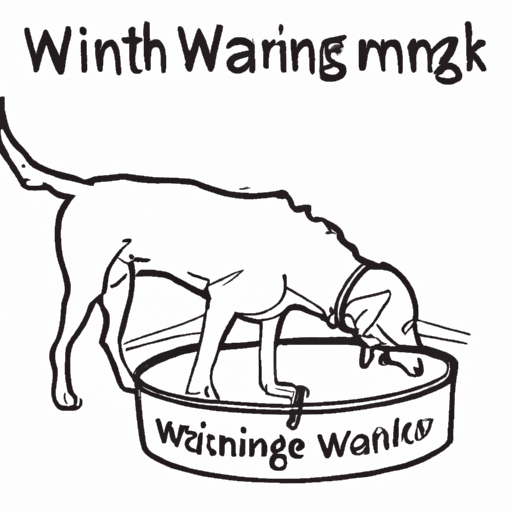Just like humans, our canine friends need to stay hydrated. After all, about 60-80% of a dog’s body is water, and it plays a crucial role in its overall health. But how much should dogs drink? The answer to this question isn’t always straightforward, as it depends on a variety of factors including size, age, diet, and activity levels. This guide will delve into these factors and provide a detailed understanding of a dog’s hydration needs.
Table of Contents
1. Understanding a Dog’s Hydration Needs
2. Factors Influencing Water Intake
3. Signs of Dehydration
4. Frequently Asked Questions
Key Takeaways
* Dogs generally need to drink one ounce of water per pound of body weight per day.
* Factors like size, age, diet, and activity levels can influence a dog’s water intake.
* It’s crucial to recognize the signs of dehydration in dogs, such as lethargy, panting, and dry gums.
* Always provide clean, fresh water for your dog to encourage hydration.
Understanding a Dog’s Hydration Needs
Dogs, much like humans, require water to survive. The rule of thumb is that a dog should consume at least one ounce of water for each pound of body weight per day. This baseline can help you ensure your dog is getting enough water, but it’s not a one-size-fits-all solution. Factors like your dog’s size, age, diet, and activity levels can influence the amount of water they need to stay hydrated.
This means that a 30-pound dog would need to drink at least 30 ounces of water per day. However, this is just a baseline and your dog’s needs may be different. The key is to observe your dog and adjust their water intake as needed.
This article from PetMD provides a more detailed overview of the importance of water for dogs.
Factors Influencing Water Intake
Several factors can influence how much water your dog should drink every day. Here are some of the most significant ones:
- Size: Larger dogs typically need more water than smaller ones. For instance, a Great Dane will need much more water than a Chihuahua.
- Age: Puppies tend to need more water per pound of body weight than adult dogs because they are growing and developing.
- Diet: Dogs that eat dry food may need more water than those on a wet food diet because dry food contains less moisture.
- Activity Levels: Active dogs that get lots of exercise need more water to replace the fluids they lose through panting and sweating through their paws.
It’s important to note that these factors can vary widely from dog to dog. You should always observe your dog and adjust their water intake as needed. This OneTopDog blog post provides some helpful tips for assessing your dog’s hydration status.
Signs of Dehydration
Dehydration in dogs is a serious issue that can lead to severe health complications. It’s vital to recognize the signs of dehydration so you can take action immediately. Some common signs include:
- Lethargy or decreased energy levels
- Excessive panting or difficulty breathing
- Dry or sticky gums
- Loss of appetite
If you notice any of these signs, it’s important to provide your dog with water immediately and consult a vet if symptoms persist. You can learn more about dehydration in dogs from this informative article on OneTopDog.
Frequently Asked Questions
1. Can dogs drink too much water?
Yes, dogs can drink too much water, a condition known as water intoxication. This can lead to dangerous health issues like bloating, vomiting, and even seizures. If you suspect your dog is drinking too much water, consult a vet immediately.
2. What kind of water should I give my dog?
Always provide your dog with clean, fresh water. Tap water is usually fine, but if you have concerns about its quality, consider using filtered or bottled water.
3. Can I give my dog flavored water or sports drinks?
No. Dogs should only drink plain water. Flavored waters, sports drinks, and other beverages can contain ingredients that are harmful to dogs.
By understanding your dog’s hydration needs and being vigilant about providing clean, fresh water, you can ensure your furry friend stays healthy and hydrated. Remember, when in doubt, always consult with a vet or professional dog care expert. This OneTopDog guide offers additional resources on proper dog care.



